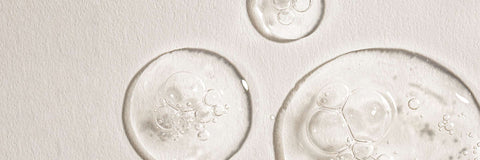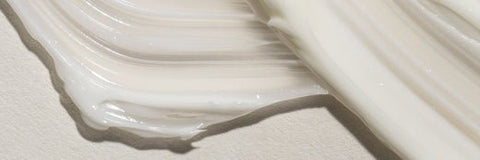Stress is no joke. Maintaining increased levels of stress can wreak havoc on the body, and unfortunately, your skin is not immune. Breakouts, redness, inflammation, and premature aging are just a few ways that stress can affect the health of your skin. Read on as we outline some simple ways to relieve stress for healthier skin.
IN A NUTSHELL
Main Takeaways: Stress is infamous for showing up on our face. For truly healthy skin, one must look beyond their regimen and also develop healthy strategies for managing and relieving stress.
Good to Know: In times of stress, one cannot underestimate the importance of self-care. Make time to prioritize yourself. In doing so, you will be better equipped to manage stress when it stressful situations occur.
Recommended Products: Prince Charcoal Detox Mask and So Clean! Facial Cleanser.
Effects of Stress on Skin
Stress can bring on a host of skin issues, many of which are caused by the infamous stress hormone, cortisol. Increased cortisol levels can lead to an overproduction of sebum, causing oily skin and pesky breakouts. Cortisol is also responsible for breaking down collagen and elastin, which can lead to premature aging, fine lines, and wrinkles.
Stress can also trigger bouts of hypersensitivity and exacerbate a number of inflammatory skin conditions, such as eczema and rosacea. Finding ways to best reduce stress levels can help you preserve the beautiful complexion that you work so hard to maintain.
Ways to Reduce Stress for Healthier Skin
Prioritize Yourself
We honestly can’t say enough about the importance of self-care. Failing to make time to prioritize yourself and your well-being eats into our capacity to manage our responsibilities and the associated stress. When we give ourselves time and permission to serve ourselves, we fill our cups so that we can graciously pour from them.
Maybe your preferred form of self care is a 5 minute breathing meditation before work, setting aside time to read a new book, or simply taking a hot bath. Since beautiful skin is the goal, try playing home-spa with a beautifully scented detox mask, like our Prince Charcoal, or reframe your facial cleanse as a relaxing, mindful experience, complete with a facial massage or pressure points, rather than just whizzing through it. Whatever self-care means to you, be sure to let it take center stage regularly.
Get Enough Sleep
Getting enough sleep is critical for stress management and overall well being. Sleep recharges the body, sharpens the mind, and has a profound impact on your mood, consciousness, and perspective. Studies show that when people don’t get enough sleep, they become more reactive, impulsive, and sensitive. Consequently, not getting enough quality sleep can not only cause physical and mental stress, but also render you virtually incapable of effectively managing stress when it occurs.
So, get your sleep– preferably 8 hours a night. Limit distractions by keeping your phone and other devices away from your bedside. Establish a routine by trying to hit the hay at about the same time each night and consider adding in a pre-bedtime ritual like reading or journaling for ten minutes to help your body settle in.
Exercise
Exercise, especially high intensity work, activates the fight or flight response, making it great for stress management. As you push through a challenging workout, you not only train your body, but also your mind, to keep going– to encounter the stress, recognize it, and work through it. Individuals then carry that ability with them and inadvertently apply it elsewhere.
But there is a physical component as well. Exercise releases endorphins, the hormones that give you all the good feels and reduce the negative emotions associated with stress. It can also give your immune, cardiovascular, and digestive systems a boost. Lastly, exercise is often said to be meditation in motion. That repetitive behavior that requires intense focus and presence helps us build up our capacity for mindfulness, which is directly correlated to healthy stress management.
Even if joining a gym is not your cup of tea, there are so many different ways to incorporate exercise into your life, including walking to work or following along to a yoga app in your living room. Focus less on how you should move and more on what moves you.
Meditate
Meditation is the answer to your raging, roller coaster of an existence, backed by thousands of years of history and science. Studies show that meditating, even for less than 15 minutes a day, can actually change our neurological patterns. It calms the nervous system, disciplines the mind, and ultimately makes us more available to our lives, so we can consciously live them.
Through meditation, we train our minds to stay present, let things come and go, and focus our “control” only on our thoughts and behaviors. Then, similar to what happens from adopting an exercise regimen, we learn to recognize stress when it pops up, and rather than letting it throw us, we control and mindfully choose our thoughts in response, letting the rest just happen – letting it go.
Get Outdoors
It may seem too easy, but immersing yourself in nature has been clinically proven to actively reduce stress hormone levels. Further, studies suggest that viewing art featuring scenes of nature can decrease stress-related emotions and encourage sensations of peace and calm. Try hiking that hidden trail all your friends have been raving about, visit your local botanical gardens, or simply take a walk around the block.
There are many other ways to destress, such as mindfully eating a healthy meal or getting hands on in the garden or pottery studio. And don’t discount reaching out. Ask for help. Talk to someone like a trusted friend or a therapist. If you’d prefer an impartial ear but your schedule is jammed, virtual options exist.
Stress is no one’s friend. But with a few simple tools in your kit, you can navigate it like a boss and pave the way for healthier skin… and a healthier you.






